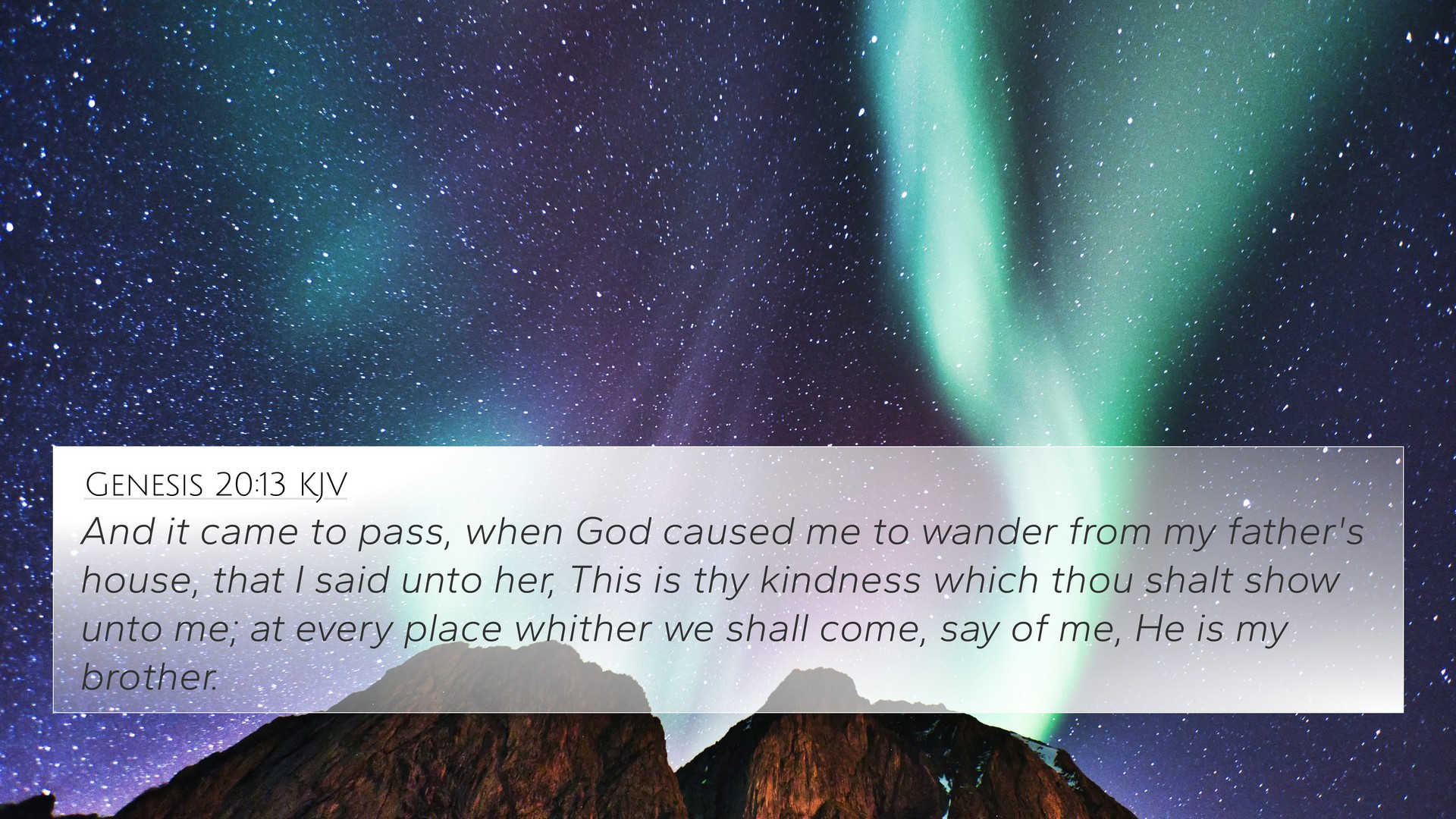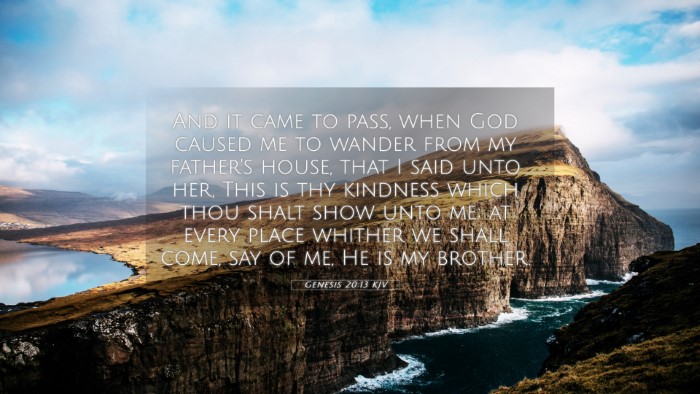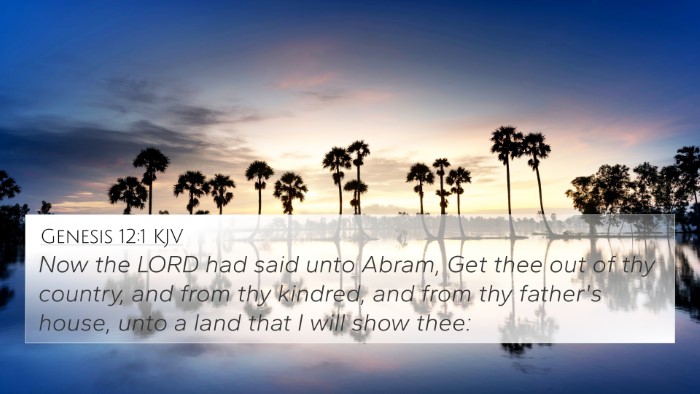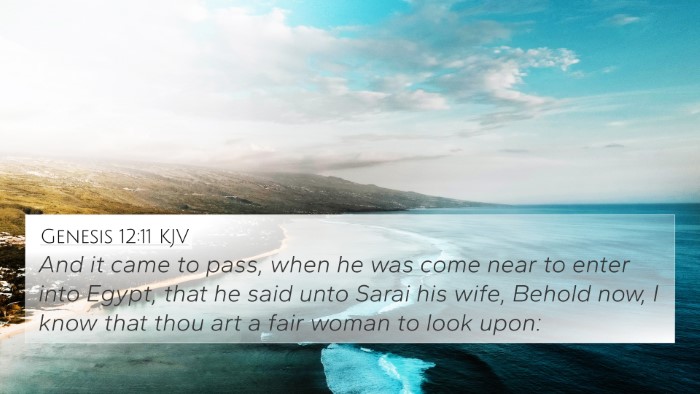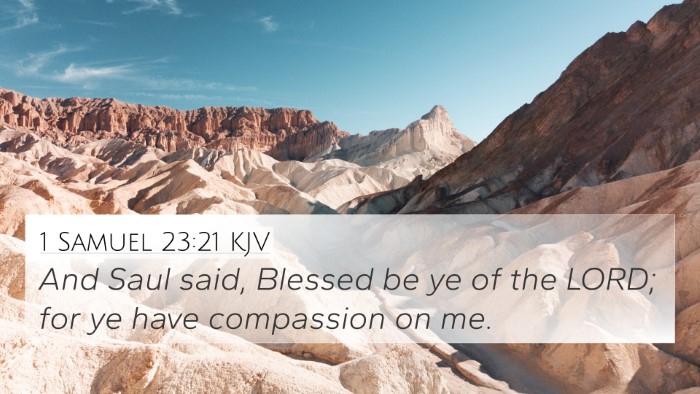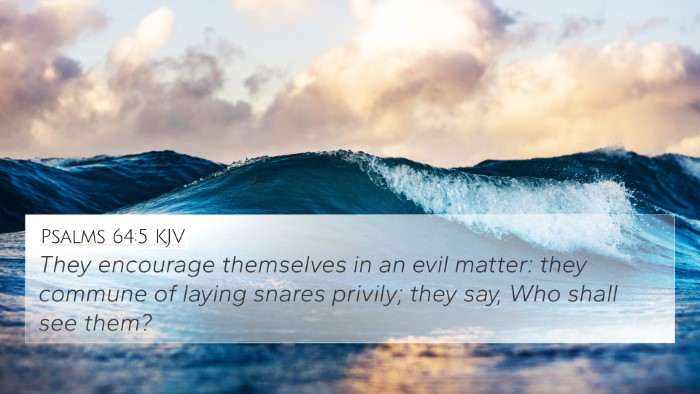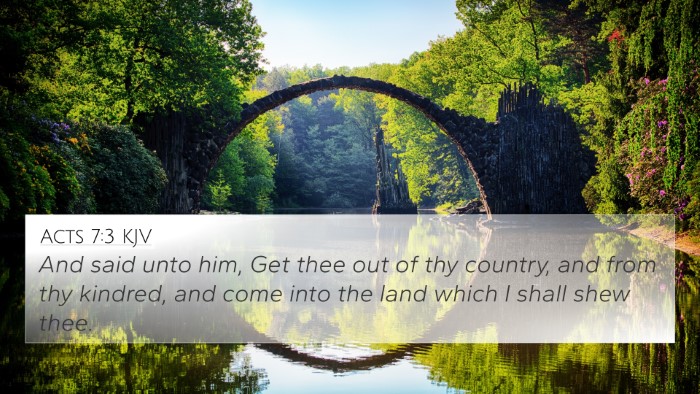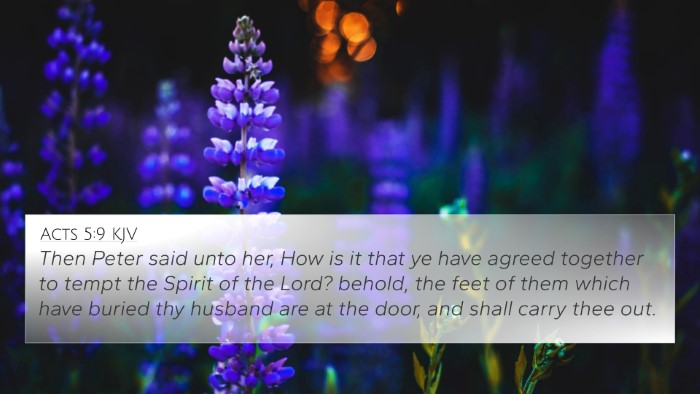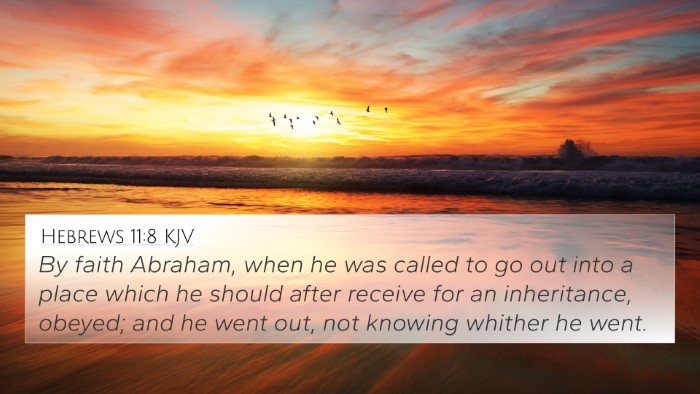Understanding Genesis 20:13
Bible Verse: Genesis 20:13 - "And it came to pass, when God caused me to wander from my father's house, that I said unto her, This is thy kindness which thou shalt show unto me; at every place whither we shall come, say of me, He is my brother."
Summary of Meaning
This verse presents an important moment in the life of Abraham as he interacts with Abimelech, king of Gerar. It showcases the complexity of Abraham's character, particularly revealing his approach to protecting his own life through deception and his reliance on Sarai (Sarah) to affirm a falsehood about their relationship. The divine mention illustrates that God plays a significant role in the dynamics of human actions and decisions, enhancing the narrative's theological implications.
Insights from Public Domain Commentaries
- Matthew Henry:
Matthew Henry notes that this verse highlights Abraham's fear and lack of faith in God's protection. Rather than trusting in God’s promise, Abraham resorts to a deceitful strategy by asking Sarah to present him as her brother. This reflects an ongoing theme in the Abrahamic narrative of testing faith and vulnerability amidst challenges.
- Albert Barnes:
Albert Barnes focuses on the historical and contextual implications of Abraham's actions. He emphasizes that Abraham’s sojourn in Gerar and his interactions with Abimelech demonstrate the broader theme of God’s covenant and his providence. Even in moments of weakness, God's purpose prevails, as seen through how He protects Sarah and ensures that His covenant line is intact.
- Adam Clarke:
Adam Clarke interprets this verse from a theological perspective, remarking that Abraham’s statement reflects cultural norms of the time where half-truths were commonplace for protection. Clarke points out the irony of Abraham, who is called the father of the faithful, acting out of fear instead of faith, thereby illustrating the struggles of humanity even among the chosen of God.
Cross-References
This verse has several biblical connections which provide deeper understanding:
- Genesis 12:10-13: Abraham's earlier deception in Egypt where he again presents Sarah as his sister.
- Genesis 26:7: Isaac follows in his father's footsteps and presents Rebekah as his sister because of fear.
- Genesis 18:10-14: God’s promise to Abraham regarding a child, illustrating the faith theme against the backdrop of vulnerability.
- Hebrews 11:8-10: This passage emphasizes Abraham’s faith in God that led him to a land of promise, despite the fears exhibited in Genesis 20.
- James 2:23: Abraham is called a friend of God, pointing towards his covenant relationship and faith amidst his failings.
- Psalms 105:14-15: God's defense of the patriarchs, showing His protection over Abraham and Sarah.
- Romans 4:20-21: Paul discusses Abraham’s faith in God's promises, contrasting with the doubt present in his actions recorded in Genesis.
Thematic Connections
This instance in Genesis draws upon various themes that can enrich one’s understanding of scripture through comparative analysis:
- Faith vs. Fear: The contrast between Abraham’s faith in God’s promises and his fear that leads to deceit mirrors the struggles faced by many believers.
- Devine Sovereignty: God’s unwavering sovereignty over human folly is seen here; He uses Abraham’s flaws to accomplish His divine plan.
- Covenant Relationship: Abraham's relationship with God, highlighted throughout Genesis, showcases the complexities of faithfulness and human error.
- Protection and Providence: God's providence is a recurring theme as He protects Sarah from potential harm, reaffirming His promises to Abraham.
Conclusion
In viewing Genesis 20:13 through the lens of public domain commentaries and scriptural cross-referencing, we glean a deeper understanding of Abraham's narrative. This verse raises questions of faith and human psychology, while consistently pointing to God's ultimate providential care over His creation. This interplay between humanity's weaknesses and divine strength serves as a reminder of the grace available to all. The connections formed through comparative study provide a wealth of insights for Bible verse interpretation and thematic exploration.
SEO Keywords
Utilizing our findings here, we touch upon important keywords related to scriptural studies. For instance, those looking for bible verse cross-references or bible verses that relate to each other will find robust connections throughout this analysis. The themes of faith and providence echo through cross-referencing Biblical texts, while also highlighting tools for meaningful cross-reference Bible study.
